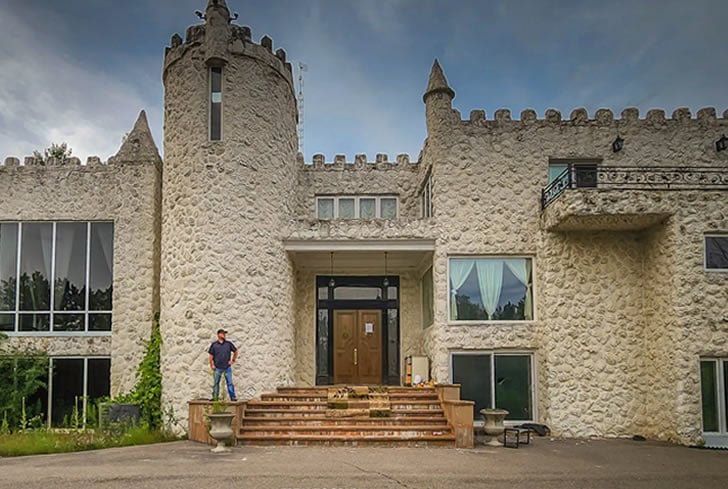Looking to turn abandoned houses into affordable housing? Follow this guide to understand the process and maximize opportunities in the real estate market.

Looking to turn abandoned houses into affordable housing? Follow this guide to understand the process and maximize opportunities in the real estate market.
Understanding Abandoned Houses in Real Estate
Abandoned houses can be an eyesore or a treasure trove for savvy real estate investors. These properties, often left behind due to foreclosure, neglect, or economic downturns, can potentially become profitable investments if handled correctly.
Why Abandoned Houses Are a Real Estate Opportunity
Lower Purchase Costs
: Abandoned houses are usually sold at a fraction of their market value because they require significant repairs.Less Competition
: Many investors shy away from these properties because of the perceived risks.High Potential ROI
: With the right investment in renovations, the value of these properties can increase substantially, delivering high returns.Identifying Potential in Abandoned Houses
The key to success in real estate investments involving abandoned houses is the ability to identify properties with potential value. Here are a few tips to help you:
Research the Area
: Investigate the neighborhood’s growth trends. Abandoned houses in up-and-coming areas have a higher potential for value appreciation.Inspect the Property
: Always perform a thorough inspection to understand the scope and cost of required repairs.Understand Legal Implications
: Ensure the title is clear, and be aware of any liens or legal issues associated with the property.Transforming Abandoned Houses into Affordable Housing
With rising property prices, transforming abandoned houses into affordable housing options can provide a solution for both investors and communities.
Steps to Convert Abandoned Houses
Purchase at Low Cost
: Acquire the property at a low cost either through auctions, direct purchases from owners, or through banks holding foreclosures.Plan Renovations
: Focus on essential repairs and improvements to make the house livable and up to code. Prioritize cost-effective upgrades which increase functionality.Partner with Non-Profits
: Collaborate with non-profit organizations focusing on affordable housing to get insights and potentially secure funding or grants for renovations.Sustainability Upgrades
: Consider including energy-efficient upgrades to reduce future utility costs for potential occupants.Real Estate Investment Strategies for Abandoned Houses
Turning abandoned properties into profitable investments requires a well-outlined strategy. Here are some strategies to consider:
Hold and Rent Strategy
Renovate and Rent
: After purchasing and renovating the abandoned properties, rent them out at affordable rates in alignment with the local market.Screen Tenants
: Ensure you conduct thorough background checks to attract responsible tenants who will maintain the property well.Monitor Market Trends
: Keep an eye on real estate market trends to adjust rental fees and plan for good appreciation.Fix and Flip Strategy
Quick, Quality Renovations
: Minimize holding costs by ensuring the renovation process is efficient but maintains quality to attract buyers.Sell at Market Value
: Post-renovation, sell the property at a competitive market price. A refreshed property will appeal to first-time homebuyers looking for affordable options.Effective Marketing
: Utilize online listings, social media, and traditional real estate marketing channels to reach potential buyers.Challenges and Solutions in Real Estate Investments
Investing in abandoned houses for affordable housing needs thoughtful consideration of potential challenges.
Common Challenges
Extensive Repairs
: Abandoned houses often require significant repairs which can be expensive.Market Fluctuations
: Real estate markets can be unpredictable, affecting both rental income and property sales.Legal Issues
: Properties may have legal complications, including unclear titles or outstanding debts.Mitigation Strategies
Professional Inspections
: Always get professional inspections to get a detailed understanding of repair needs and costs.Flexible Budgets
: Maintain flexible budgeting to manage unforeseen expenses during renovations.Legal Advice
: Consult real estate attorneys to navigate any legal hurdles and ensure clear property titles.The Community Impact of Affordable Housing
Transforming abandoned buildings into affordable houses doesn’t just benefit investors; it also revitalizes communities.
Benefits to the Community
Neighborhood Aesthetics
: Renovated homes reduce urban blight and improve the visual appeal of neighborhoods.Economic Growth
: Affordable housing can attract new residents and businesses, driving local economic growth.Social Stability
: Providing affordable housing options can help reduce homelessness and stabilize families, contributing to a more cohesive community.Conclusion
Investing in abandoned houses for affordable housing represents a win-win scenario—profit for real estate investors and sustainable solutions for housing shortages. Proper due diligence, smart renovation strategies, and community collaboration are keys to success in this endeavor. If approached correctly, such projects can bring significant economic, social, and aesthetic benefits to both investors and the communities involved.









